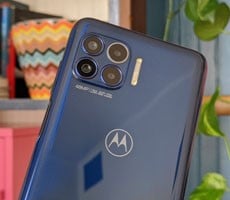Android vs. Windows Phone: The Case For Conversion
Android: Is It Still The Best iOS Alternative?
 2012 is shaping up to be a major year for mobile operating systems. For those fortunate enough to own a smartphone, these are exciting times. Competition is fierce, and the winner is you. Regardless of which platform you're keen on, you can bet that each of the major players are pushing the others to innovate and improve. In just a few weeks, Apple's Worldwide Developer Conference will kick off. While it remains to be seen if a new MacBook Pro or a new iPhone will launch, one thing is very likely: iOS 6 will be showcased for the first time.
2012 is shaping up to be a major year for mobile operating systems. For those fortunate enough to own a smartphone, these are exciting times. Competition is fierce, and the winner is you. Regardless of which platform you're keen on, you can bet that each of the major players are pushing the others to innovate and improve. In just a few weeks, Apple's Worldwide Developer Conference will kick off. While it remains to be seen if a new MacBook Pro or a new iPhone will launch, one thing is very likely: iOS 6 will be showcased for the first time.WWDC 2011 was where iOS 5 really got its wings, and Siri was brought into the fold last October. iOS 6 is apt to be the biggest iOS release yet, and as the first full iOS release since the Retina-display enabled iPad hit, it'll probably have quite a bit of iPad-specific tweaks, too.
Google, on the other hand, is poised to showcase the next major revision of Android just weeks later at this year's Google I/O. For Google, it's an interesting beast. Android 5.0 (Jelly Bean) will be the main topic of conversation, right alongside the company's recently-finalized acquisition of Motorola Mobility. To date, we haven't heard a lot about Android 5.0 in terms of features, but Ice Cream Sandwich (Android 4.0) has had a lot of time to mature. Particularly on the Galaxy Nexus, the pure version of ICS is one of the most fluid, visually appealing mobile OSes -- but is it still the best alternative for those who are shying away from the iPhone for one reason or another?
We ask the question because of Windows Phone's recent successes, however mild they may be. Microsoft's Windows Phone 7.5 (Mango) feels like a completely overhauled version of the original WP7 build that shipped with phones like the HD7, Omnia 7 and Samsung Focus. Originally, it felt as if Windows Phone 7 was forced out just in time for the holiday season, but the latest version is a significantly better option. We'll delve deeper on that in a bit. For now, let's look at the existing pros and cons of Android.

One of Google's best decisions was its choice to release the "Nexus" line of devices. These "special" phones run a "pure," un-skinned version of Android. Perhaps not surprisingly, these are also widely regarded as some of the best Android phones to ship. Personally, I've been using Android as my primary mobile OS for the past three years, while still keeping a toe in the water of iOS and Windows Phone (and webOS, while it lasted). If you're looking for compelling reasons to stay planted in the Android universe, here are a few of my favorite Android features:
The Native Gmail App

The Booming Google Play Market

Google Maps Navigation

Google Drive

Customization possibilities
Yes, this is nerdy, but if you're reading this, chances are you'll care. Google's Android platform is without question the easiest to customize, and the options are numerous. A highly populated forum by the name of xda-developers is flush with Android skins, mods, hacks and ROMs, enabling users to install all manners of Android on their phone. If you aren't totally pleased with what Google's giving you, chances are CyanogenMod or other custom ROM will do the trick. You'll also be able to add new widgets, install underground applications, run all sorts of metrics and tests -- it's a tinkerer's playground. If you're into hacking, Android remains the best mobile platform for that kind of modification.
Now that we've discussed some of the pros of Android, let's take a look at some of the downsides.
Battery life
Outside of a select few devices (like the DROID RAZR Maxx), most Android phones have below average battery life. Particularly if you're a power user who tends to keep a lot running in the background, or if you take advantage of Google Maps Navigation. Keeping the nav going and the display on can zap a smartphone's battery in just a few hours, from a full charge. Thankfully, the accessory market is huge, and it's not too tough to find extended batteries for most major Android smartphones. Of course, dealing with the extra bulge isn't something that some folks will like.
Design
For those that are keen on continuity and aesthetics, Android may be somewhat of a letdown. Yes, it's fairly polished, but most would argue that iOS and Windows Phone are far sexier platforms. Android is the most customizable, but it also feels a bit bolted-together in parts because of that. There's rarely a uniform look -- skins can make it look like anything -- and there's something of a cacophony of design ideas going on at any given time.
Pricing
Strangely, prices for Android smartphones have been rising. Many LTE-equipped Android phones hit the market at $199 - 299 on contract, which is about $100 more than similarly equipped Windows Phone products and the 3G-enabled iPhone 4S. Yes, it's possible to get slightly dated Android phones for less, but somewhat higher pricing is certainly something to consider.
Now, onto Windows Phone...






